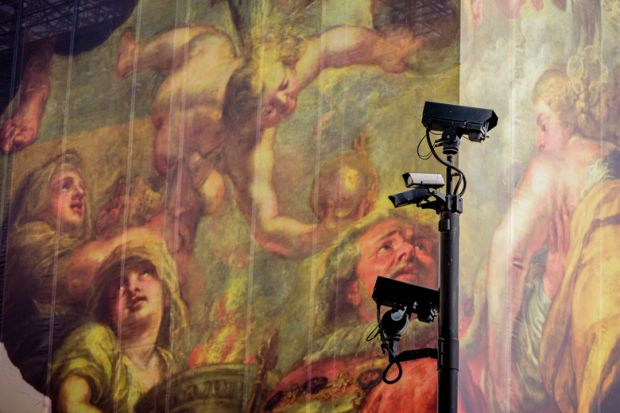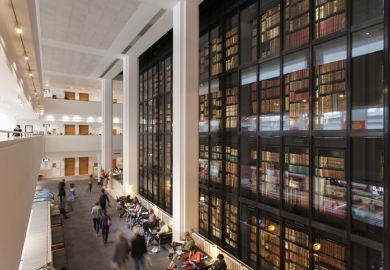More than eight in 10 UK academics say universities’ excessive use of digital technologies is harming academic freedom, according to a survey.
The poll of more than 2,000 scholars conducted for the University and College Union (UCU) highlights growing unease over the digital tools commonly used in academia, such as the virtual learning environments (VLEs) used to facilitate teaching, electronic systems to evaluate teaching performance and metrics-based systems such as SciVal that enable managers to scrutinise research publications and citations.
According to the study’s poll, 82 per cent of staff said they felt that digitally enabled performance management practices had reduced academic freedom over the past decade, with 84 per cent agreeing that digital monitoring of the student experience had eroded academic freedom.
Lecture recording was also cited as a major staff concern, according to the report, called Academic Freedom in the Digital University, published on 7 May. Fifty-nine per cent of respondents said lecture recordings captured on VLEs reduced their sense of academic freedom.
Grade monitoring surveillance via digital tools also led a majority of respondents (57 per cent) to feel a reduced sense of academic freedom, while the same was true for electronic systems that tracked the design of assessment (65 per cent felt compromised), the study found.
One scholar complained about having to “‘fudge’ our marking to ensure we meet the institutional demand that the average mark on any given module is at least 60 and that at least 90 per cent of students pass”. “Student work that eight to nine years ago would have failed is now being given a bare pass mark – essentially, we’re pressured to not mark ourselves out of our jobs,” they added.
Seventy-five per cent of respondents also agreed that student feedback tools, including online module evaluations and student satisfaction scores, had eroded their sense of academic freedom. One staff member explained that these feedback mechanisms meant that “every word is monitored” and that “management…always seem to side with students however irrational they are”.
On research, about two-thirds of respondents (71 per cent) said they believed their institutions had the ability to track their research performance via citation monitoring systems, such as SciVal. About 90 per cent of respondents said they believed this kind of digital monitoring would lead to more institutional control over research within five years.
The report’s authors, Chavan Kissoon and Terence Karran, both from the University of Lincoln, said its findings showed academics had a “high awareness of their research performance being measured”, which was “impacting negatively on staff well-being”, given that 71 per cent said monitoring had lowered their happiness levels.
Campus resource collection: What can universities do to protect academic freedom?
Universities should collaborate with their workplace unions to establish policies and principles to ensure the ethical use of digital systems, while institutions should be transparent about how they were using new technologies to monitor staff, they added.
UCU general secretary Jo Grady said the 224-page report showed how universities were “increasingly using digital technologies to surveil, record and scrutinise staff, and that this is corroding academic freedom”.
“All too often, the terms of debate on academic freedom are dictated by right-wing culture warriors, neglecting the day-to-day reality of university staff having their ability to research and teach freely eroded by panopticon-like digital management systems,” said Dr Grady.




